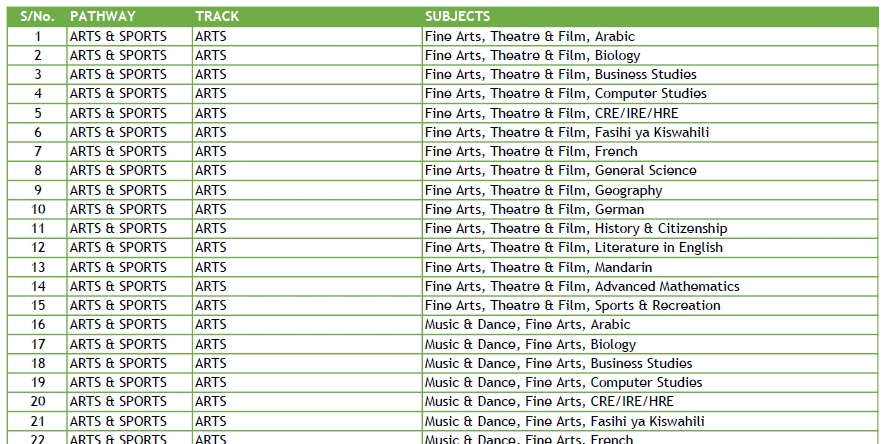Long-serving Education Principal Secretary Belio Kipsang has been reassigned.
President William Ruto of Kenya has appointed new Principal Secretaries as part of recent changes in his administration.
According to a memo released on Thursday, March 20, Ruto has moved Kipsang from the Basic Education role in the Education Ministry shortly after he made controversial statements regarding Mathematics.
Last Thursday, Kipsang announced that Grade 9 students—the first cohort under the Competency-Based Curriculum (CBC)—will start selecting their subjects and senior schools in the second term of this year.
“We are allowing time for parents and students to discuss their interests and future paths. The selection process will begin as soon as they return to school,” he stated.
The former Education Principal Secretary indicated that Mathematics will no longer be a mandatory subject for students moving to senior secondary school, representing a significant shift under the CBC framework.
Instead, students will be required to take English or Kenya Sign Language, Kiswahili, Physical Education, and Community Service Learning as compulsory subjects, while they can choose from a selection of 38 options to guide their academic and career paths.
This marks a departure from the previous 8-4-4 system, where Mathematics was a core subject alongside English, Kiswahili, and at least two sciences (Physics, Chemistry, or Biology).
Moreover, the Ministry of Education has proposed a cap on the number of students from a single junior secondary school who can enroll in the same senior school, limiting it to a maximum of five. This change aims to encourage diversity in student placements, although some stakeholders believe it may be overly ambitious, particularly for day schools that draw students from their local areas.
On Thursday, the Kenya National Examination Council announced that the final Grade 9 score will be determined by students’ performance in primary school, internal assessments conducted by teachers, and their results from the national Kenya Junior School Education Assessment (KJSEA), which will take place at the end of the year.
The KJSEA will account for 60 percent of the final score and will also influence the student’s placement in senior secondary school. The remaining 40 percent will be evenly divided between scores from internal assessments and primary school performance.
Students who are unhappy with their placements will have the chance to request transfers, depending on available spots after reporting.
For private candidates—those not enrolled in a formal educational institution—placement will only be available in day senior secondary schools.
Senior schools will now be categorized into three main academic pathways to accommodate the varied interests and abilities of students.
The Triple Pathway Schools will provide three distinct areas of study: science, technology, engineering, and mathematics (STEM), social sciences, and arts and sports.
However, students will not be required to take all three. Instead, they will choose a pathway that aligns with their strengths and aspirations.
The Double Pathway Schools will offer either STEM and social sciences, or STEM and arts.
Meanwhile, the Vocational and Special Needs Pathway Schools will cater for learners with disabilities such as autism, cerebral palsy and cognitive challenges, focusing on hands-on vocational training tailored to their abilities.
To further streamline placement, the ministry has classified senior schools into three types based on accommodation; day schools and hybrid schools, which will accommodate boarding and day students, with specific provisions for boys-only, girls-only, or mixed-gender setups.
Subjects
Senior schools will offer a total of 38 subjects, with core subjects including English, Kiswahili, Kenyan Sign Language for learners with hearing impairments, physical education, and community service learning. Information and communication technology will be integrated across all subjects.
Eunice Gachoka, the senior deputy director of Educational Media at the Kenya Institute of Curriculum Development, projected that 15 per cent of learners will pursue the arts and sports pathway, which is structured to nurture creative talents and athletic abilities. This pathway is divided into two main areas, sports science and performing arts.
“We anticipate that 15 per cent of learners will pursue this route, while 60 per cent will opt for STEM. The STEM track will cover areas such as building construction, electricity, metalwork, mechanics, woodwork, media technology and specialised subjects like marine and fisheries technology, which will be available in select schools,” she said.
Alice Gathii from the Ministry of Education assured that the placement process will be structured to guide learners into specialised fields based on their interests and abilities. She clarified that learners in triple pathway schools will not be required to take all three pathways.
“We’ve ensured that learners with hearing, visual, physical, cognitive, or developmental challenges such as autism and cerebral palsy are not left behind,” she said.
Regarding placement, Gathii assured parents that learner preferences and school capacity will be key considerations.
Meanwhile, in the latest changes, President William Ruto has Moved Ps Kipsang from the Ministry of Education to the Immigration Department.
